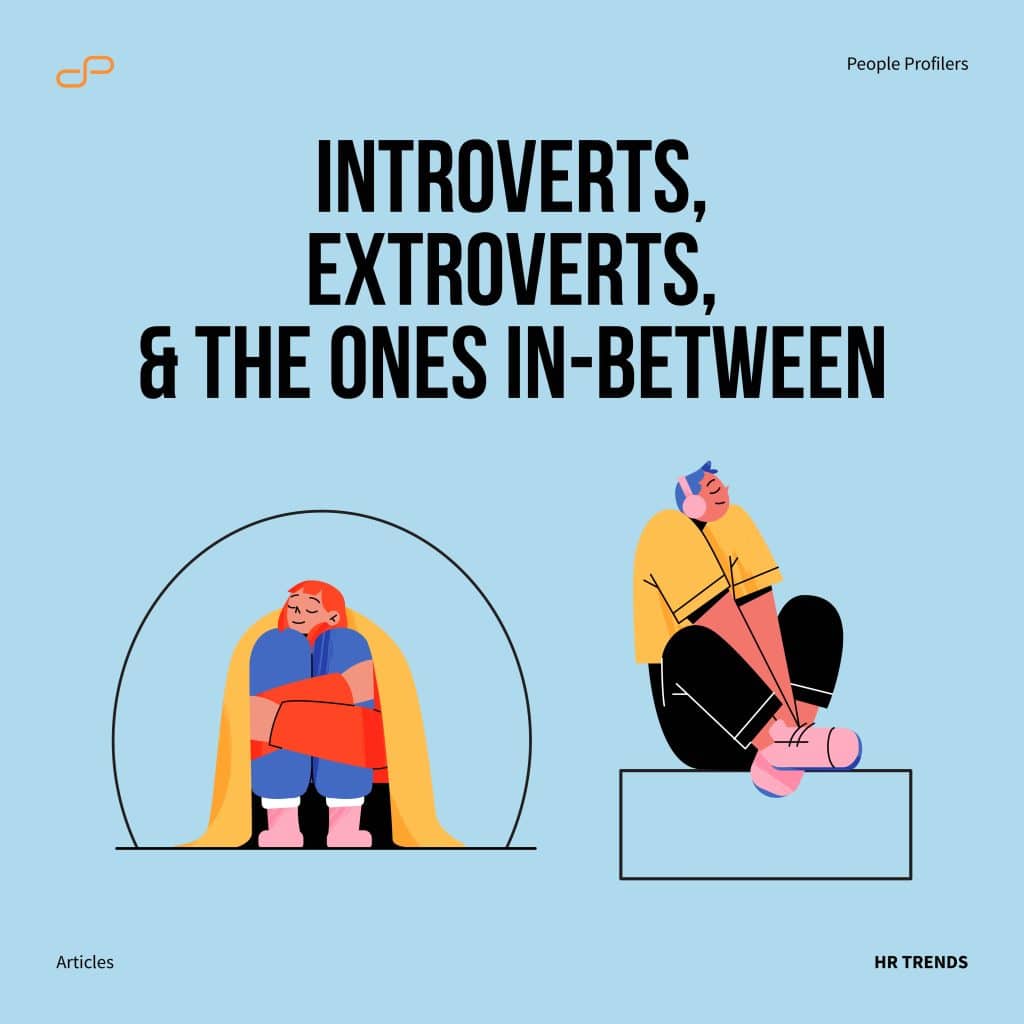
Introverts, Extroverts and the Ones In-Between at the Workplace
Contrary to popular belief, extroverts aren’t always loud and confident, and introverts aren’t always quiet and shy. The ones “in-between” are almost always misunderstood.
Extroversion and introversion aren’t about how outgoing or shy a person is but about what gives them energy. Understanding the differences will help you better manage the different personalities on your team and reap the benefits of them working together!
MANAGING EXTROVERTS
Extroverts thrive on social interactions. They love conversations and gravitate towards groups. In the workplace, extroverts excel at networking, public speaking, and team collaboration. Many extroverts are comfortable with multitasking and fast-paced work environments. Some even find adapting to sudden changes a breeze.
The professional world’s made for extroverts: fast-paced turnovers, group projects, team meetings and many social gatherings. While it’s wise to leverage the enthusiasm of the extroverts on your team and encourage them to speak up and contribute, you should also teach them to listen and reflect on the opinions of quieter team members.
That said, extroverts do have their struggles. Many extroverts need help to work on tasks that require extended periods of focused attention in isolation. Ensure you provide them with a collaborative space to work together in relative silence so they don’t burn out while doing independent work.
MANAGING INTROVERTS
Introversion is often seen as a liability to the team as their social processes work opposite to extroversion. Introverts dislike big group settings and find it difficult to open up. They get exhausted by social interactions quickly and often prefer to concentrate on a single task at any given time.
Suppose you’re managing a team with many experienced members. In that case, you might find it hard to identify introverts because they’ve practised acting like extroverts and may appear social and outgoing at work.
However, this does not mean they’ve become extroverts. They still need uninterrupted work time to gather their thoughts and function better.
Research shows that brainstorming individually is better for coming up with ideas anyway, so give your team time to gather their thoughts before your group meetings. Share your meeting agenda a few days prior, and provide the introverts time to think about how they want to share their ideas during the meeting so they don’t feel like they’ve been put on the spot.


